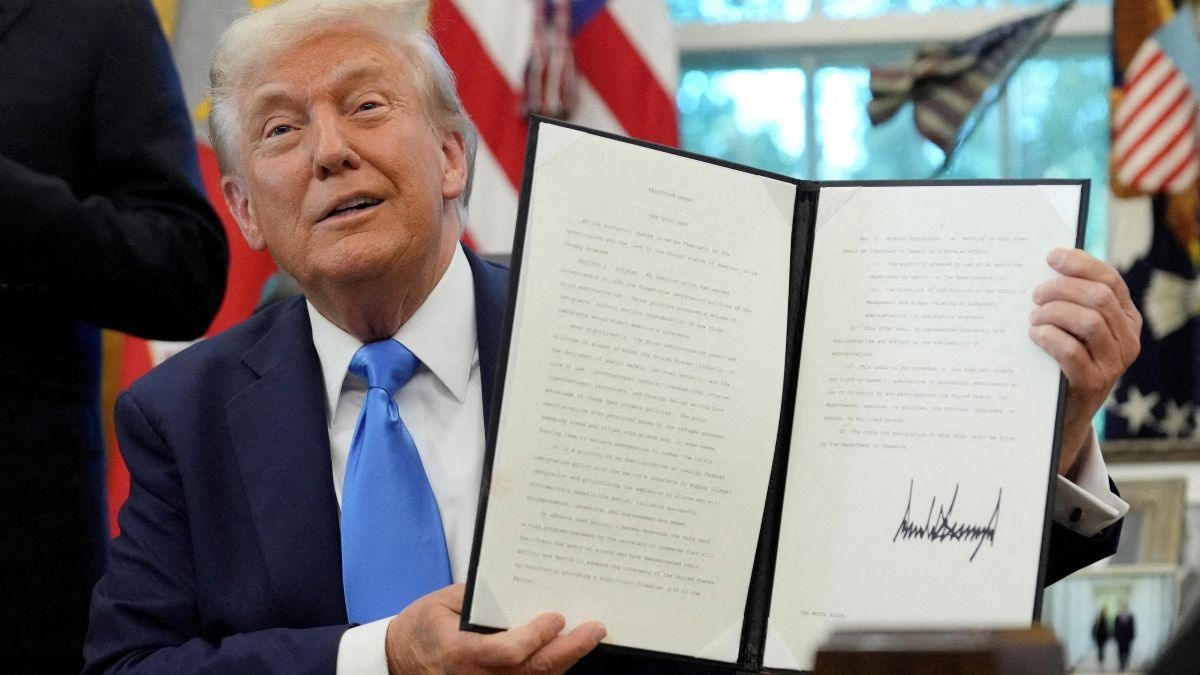$100,000: The Trump administration introduced a $100,000 one-time fee for those who wish to obtain a H-1B visa. The initial announcement sparked upheaval among major US firms, as it appeared to suggest that there would be an annual $100,000 fee for the visa. The White House clarified that it would be a one-off payment, and wouldn’t apply to existing visaholders. The majority of H-1B visaholders are Indian nationals.
140: A ransomware attack that struck several major European airports on Friday continues to sow chaos, with Brussels Airport asking airlines to cancel 140 of the 276 scheduled outbound flights on Monday. The source of the attack remains unclear.
78: A drone strike on a mosque in El Fasher, in North Darfur, on Friday killed 78 people, per a local medic. The rebel Rapid Support Forces have been blamed for the attack, though they deny responsibility. Drones have expanded the scope of Sudan’s civil war, putting more and more civilians at risk – read more here.
3: A pattern is beginning to emerge, as the US military – for the third time in recent weeks – bombed a boat that was reportedly carrying drugs from Venezuela. The attack killed three people on board. US President Donald Trump has argued that the move is legal, since drug cartels in his view are foreign terrorist organizations.
